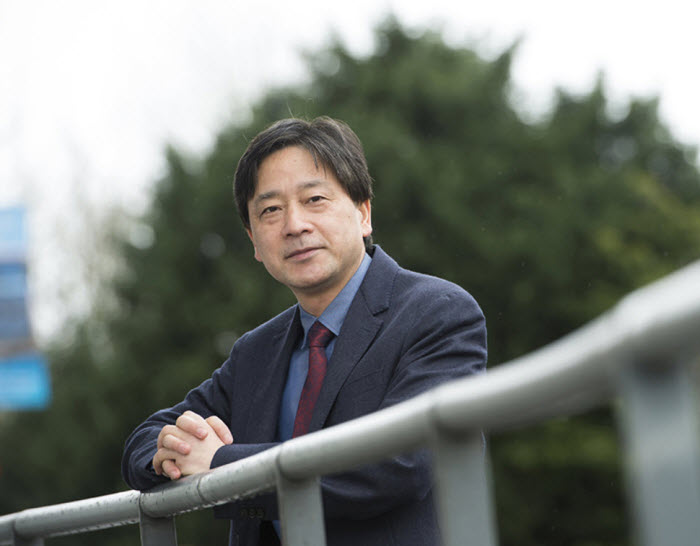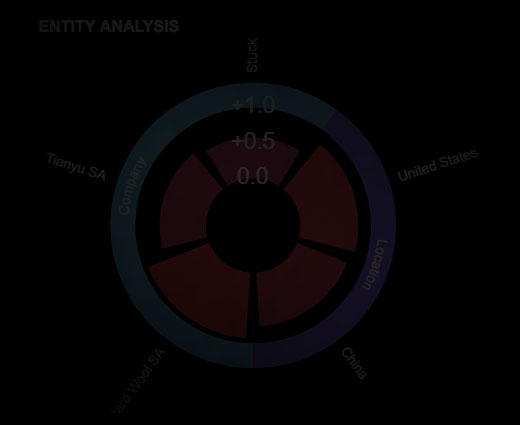WTiN's Madelaine Cornforth speaks to Yaochu Jin, professor in computational intelligence and fellow of IEEE at the University of Surrey, about the creation of the world’s first advisory board on AI and what it means for the manufacturing sector.

Yaochu Jin, professor in computational intelligence and fellow of IEEE
Image source: www.surrey.ac.uk
In the UK’s 2017 Autumn budget, presented in November 2017, the UK Chancellor of the Exchequer announced the creation of a national advisory body for artificial intelligence (AI) to help pave the way for the wider adoption of innovative AI technology.
Additionally, a total of GBP£500m investment will be used to increase the development of AI technology, as well as 5G and full fibre broadband connectivity.
Yaochu Jin, professor in computational intelligence and fellow of IEEE at the University of Surrey, says of the board: “It is timely to create the world’s first advisory board for artificial intelligence, providing ethics and standards in this evolving sector. The advisory board is an important step, as we are continually seeing AI and data being misused. Currently there are no regulations or laws on applications of AI which poses a threat to privacy and moral ethics.” Therefore the “advisory board for AI, as described by the Chancellor, aims to lay the foundations for the development of AI by working with the government, regulators and industry,” he adds.
The board will be made up of selection of individuals who represent various stakeholders, and these members will work closely with each other. Jin expects that the main challenges faced by the board may be having “a deep understanding of future developments of AI and their economic and social impacts.”
However, Jin notes that the process of the board is still unclear. He continues: “I think the main role of the board should be three-fold. First of all, it should assist the government in making policies to promote research, knowledge transfer, government and private investment, and education and training of AI researchers and professionals to maintain the UK’s leading position in AI. Secondly, the board should provide technical guidelines for the legislative organisations to make regulations for preparing new AI applications such as autonomous driving and laws against dangerous AI applications. Finally, the board should help the government and the media to educate the public so that they are well informed about the impact of AI and be prepared for the consequences (eg many traditional jobs may be destroyed), avoiding potential seriously economic or social problems.” And many of these jobs may be in the manufacturing sector, so the textile manufacturing industry must be especially aware of the potential problems that could arise with increased use of AI.
And with new innovative technologies such as AI, there is always issues of regulation: should it be regulated? If so, to what degree and by who? Jin says: “We do need new regulations to pave the way for many applications of AI, such as autonomous driving, personalised or stratified healthcare, automatic foreign currency and stock trading and unmanned stores, among many others.
These new AI applications may bring about legal issues that are not covered by existing laws.” This is particularly true of the manufacturing industry, and in particular the textile manufacturing industry, which is forever evolving with new technologies and ways to develop that can reduce labour intensity, increase efficiency and competitiveness. AI is a good example of this technology, but these developments and new ways of working need monitoring to ensure that practices stay on the right side of the law. And Jin notes that AI can be misused in many ways and this can cause huge issues inside and outside of the manufacturing industry. “In the manufacturing sector, security issues resulting from the wide use of AI techniques should be more seriously taken care of to prevent malicious AI malware from turning the machine on human beings,” or from sabotaging production, such as sabotaging the measurements of a T-shirt production line.
Investment
Along with the development of the national advisory board, an investment of GBP£500m investment has been granted to increase the development of AI technology, 5G and full fibre broadband connectivity. Jin says: “The investment in AI is critical for maintaining and growing UK’s world-leading position in AI. Surrey’s research on data-driven evolutionary optimisation of complex systems offers a compelling opportunity to address the challenges facing the UK’s manufacturing industry, which makes a major contribution to the UK economy.”
He continues: “Many governments around the world, in particular the US and China, are investing huge amounts of money and human resources into AI technology in an attempt to grasp the new opportunity AI has brought about, which is considered to be the engine of the Fourth Industrial Revolution.” However, at the moment, when it comes to AI Jin notes that it is finance, banking and the healthcare industry that are most likely to be ‘revolutionised’ first. Hopefully, manufacturing, and in particular textile manufacturing will come shortly after.
It is important that the UK keeps up with the likes of the US and China when it comes to investing in and developing new technologies for the manufacturing sector, particularly in Industry 4.0. Jin says: “The UK was the birthplace of the First Industrial Revolution and was in a leading position in both the Second and Third Industrial Revolutions. The UK has also made great efforts in keeping up in the on-going Fourth Industrial Revolution supported by several governmental and private organisations, such as Innovate UK and Research Councils in helping industry, in particular SMEs, in developing AI and digital technologies.”
He adds that the UK is leading in many key areas related to the Fourth Industrial Revolution, such as AI and 5G. However, he says: “Nevertheless, these endeavors may be impaired by uncertainties resulting from Brexit and other governmental policies such as the strict limit on overseas students to pursue postgraduate studies (in particular doctoral studies) and to work in the UK.”
Have your say. Tweet and follow us @MCornforth_WTiN and @WTiNcomment
RELATED ARTICLES
-
Blue economy boosts macroalgae innovation
- Jessica Basey
- WTiN
-
Tapping nature for innate textile colouring
- Jessica Basey
- WTiN
-
Premier Digital Textiles launches green fabrics
- Bell Press PR
- WTiN
-
News Release
Physical and digital nylon traceability








